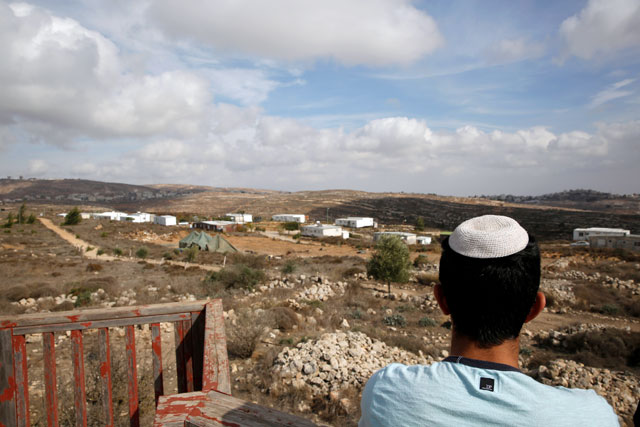OCCUPIED JERUSALEM — The Israeli parliament gave initial approval on Wednesday to a bill to legalise thousands of West Bank settler units, a measure drawing international anger and posing the government's biggest test since 2015 polls.
The bill, which would apply to an estimated 2,000 to 3,000 Jewish settler units in the occupied West Bank, requires three more full parliamentary votes to become law.
There have been reports that a behind-the-scenes compromise could see the bill now stall.
The vote in the Knesset, or parliament, was 58-50.
Prime Minister Benjamin Netanyahu initially opposed the bill, fearing an international backlash and legal implications, but voted in favour on Wednesday.
Netanyahu faces pressure to hold his right-wing coalition together and not be seen as moving against the powerful settler movement.
There has been speculation that the bill could even cause the government to collapse — though a number of analysts caution that a compromise seems more likely for now.
The bill has been pushed by hardline members of Netanyahu's coalition who defied his pleas not to move forward, while the country's attorney general says it will never hold up in court.
But those who support it say the move is urgently needed to protect a Jewish outpost in the occupied West Bank called Amona.
The outpost, where some 40 settler families live, is under a high court order to be demolished by December 25 because it was built on private Palestinian land.
The bill, however, goes far beyond legalising Amona and would allow an estimated 2,000 to 3,000 Jewish settler units in the West Bank built on Palestinian land to be legalised.
Palestinian landowners would be offered compensation in exchange, but Attorney General Avichai Mandelblit says the move would undermine private property laws.
US President Barack Obama's administration says it is "deeply concerned".
“This would represent an unprecedented and troubling step that’s inconsistent with prior Israeli legal opinion and also break longstanding Israeli policy of not building on private Palestinian land,” State Department Spokeswoman Elizabeth Trudeau said.
The international community considers all Israeli settlements in Israeli-occupied East Jerusalem and the West Bank to be illegal, whether they are authorised by the government or not.
The Israeli government differentiates between those it has approved and those it has not.
The progress of the bill, approved earlier by a committee of ministers on behalf of the government, has demonstrated the power of the settler movement.
‘Land grab’
Netanyahu’s government is seen as the most right-wing in Israeli history, and key members of his coalition advocate annexing most of the West Bank while openly opposing the idea of a Palestinian state.
Opposition leader Isaac Herzog, who heads the Labour Party, said the bill contravened Israeli and international law while justifying “theft”.
Israeli rights group Yesh Din, which represents Palestinian landowners in Amona, said parliament had “made another step towards legalising widespread land grab in the West Bank and annexing the occupied territory to Israel”.
It said it had done so “all because the so-called leaders are incapable of standing up to lawbreakers”.
Education Minister Naftali Bennett, who heads the hardline Jewish Home Party and has been the driving force behind the bill, has made no secret of his position.
Last week, after the election of Donald Trump as president in the United States, he called for an end to the idea of a two-state solution to the Israeli-Palestinian conflict, the basis of years of negotiations.
He said “the era of a Palestinian state is over”.
Netanyahu’s government currently controls 66 of the 120 seats in parliament.
Finance Minister Moshe Kahlon, whose centre-right Kulanu Party holds 10 seats, has been key and had initially threatened not to vote.
In the end, he voted for Wednesday’s initial backing but said he would withdraw support in the future if it “harms” the country’s high court.
The statement was a reference to Amona and the high court ruling against it — signalling that the bill could stall in the future if the outpost is not removed from it.
Some Israeli analysts have spoken of the outsized power Bennett has accumulated with the help of the settler movement, saying it could seem Netanyahu was serving in his Cabinet rather than the other way around.
Bennett’s Party has only eight seats in parliament.
But both men have little interest in new elections for now, a number of analysts said.
“Bennett knows that it will be difficult to have a government more right-wing than the current one,” a government official told AFP on condition of anonymity.
